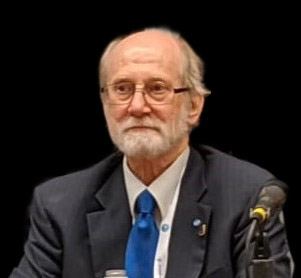Leslie Tennen, J.D.
Leslie Tennen, J.D. is Space Lawyer and Attorney at Law at the private practice Sterns and Tennen and Chair of the IISL Election Committee. He is co-chair of the International Institute of Space Law Manfred Lachs Moot Court Committee. He is Legal Counsel and Member of the Board of Trustees of the International Academy of Astronautics.
He is also the Former Commissioner of the Arizona Space Commission and is a member of the new IAA Board of Trustees for 2023–2025. He is a former member of the IISL Board of Directors and former member of the IISL Audit Committee. His firm is also a member of the International Astronautical Federation.
He has focused on space law matters for more than 30 years. He is a partner in Sterns and Tennen, the first law firm to be elected to membership in the International Astronautical Federation.
Leslie earned his Juris Doctor degree from the University of Arizona in 1976 and studied international and comparative law at Hebrew University at Mt. Scopus, Jerusalem.
He is a member of the State Bar of Arizona and was awarded the highest score on the February 1977, Arizona Bar Examination. He was appointed by the Governor of the State of Arizona to serve as a Commissioner on the Arizona Space Commission from 1994 to 2000.
He is a frequent lecturer at conferences and colloquia and has authored and coauthored several dozen articles that have been published in leading legal and scientific journals. He is Member of the Editorial Board of the Space Regulations Library.
In 1998, Leslie was the co-recipient, with Patricia Margaret Sterns, of the International Institute of Space Law Award of Appreciation. In 2006, the International Institute of Space Law awarded Leslie with a Distinguished Service Award.
Leslie is the co-author of Part II of the Registration Convention in Cologne Commentary on Space Law (CoCoSL) Volume II.
His most recent work was published in Space Law: Legal Framework for Space Activities SCIENCES – Space and Humankind. Leslie writes about the core activities of the Committee on Space Research (COSPAR) and its Planetary Protection Policy and International Law.
In Leslie’s comment Is a military space force justified?, he touches on the US formal announcement of the Space Force, a new branch of the armed forces, and how the creation of a space combat force threatens to upset the international legal order, which has successfully prevented the expansion of armed conflict beyond the physical boundaries of this planet for more than 60 years. Read Protection of celestial environments and the law of outer space coauthored by Leslie.
Coauthored and published in 2006, The Future of Planetary Protection: Is There Reason For Optimism? talks about Planetary Protection of All of the Planets, All of the Time, as stated by NASA, and summarizes the essence of the policy of planetary protection: the pristine celestial environments that must be protected from contamination by Earth-based exploratory missions.
In his 2016 article Enterprise Rights and the Legal Regime for Exploitation of Outer Space Resources, Leslie provided an analysis of enterprise rights for private space actors under international space law, arguing the current framework can enable the development of space resources without needing private appropriation.
Leslie coauthored a book Private Law, Public Law, Metalaw and Public Policy in Space, where they address many contemporary issues of space law, combining theory and practice. Their chapter SETI, Metalaw, and Social Media talks about how the discovery of intelligent extraterrestrial life will thrust Mankind into a new relationship, how Mankind interacts in the engagement of that relationship, and how the rules of Metalaw will govern it. Read the book review.
In Orbital sprawl, space debris, and the geostationary ring paper, published in Space Policy Volume 6, Issue 3, Leslie talks about how contamination of outer space by debris and non-functional objects presents a significant challenge to scientists, mission planners, and jurists.
The Lachs Moot Competition World Finals were held at the Crowne Plaza Jerusalem Hotel at the International Convention Center in Jerusalem, Israel, on October 15, 2015. The total participating universities numbered 58 in the four regions. The 2015 Moot Court Problem, “Case Concerning Planetary Defense” (SPIDR v. URA)”, was co-written by Leslie.
In 2018, Leslie was on the judges panel of the World Semifinal Rounds of the Manfred Lachs International Space Law Moot Court Competition, and in 2019, also in the world semifinals and finals of the Manfred Lachs Space Law Moot Court Competition in Washington DC.
Read Article II Of The Outer Space Treaty, The Status Of The Moon, And Resulting Issues from the IISL/ECSL Space Law Symposium 2004 about the new development and legal framework covering the exploitation of the resources of the Moon.
Read his presentation Towards a New Regime for Exploitation of Outer Space Mineral Resources? from the Conference on Near-Earth Objects: Risks, Responses and Opportunities, April 2009 at the University of Nebraska-Lincoln.
Read Lacuna in the updated planetary protection policy and international law, The Development Space Sustainability Standards Through National Licensing Regimes, and A Report on The IAA Permanent SETI Committee’s Review of the SETI Post-Detection and Reply Protocols.
Read Outer Space: A Preserve for All Humankind and National Regulation of Space Activities (read online).
Visit his ResearchGate profile and his Previous Contributions. Follow his work at Yumpu.
